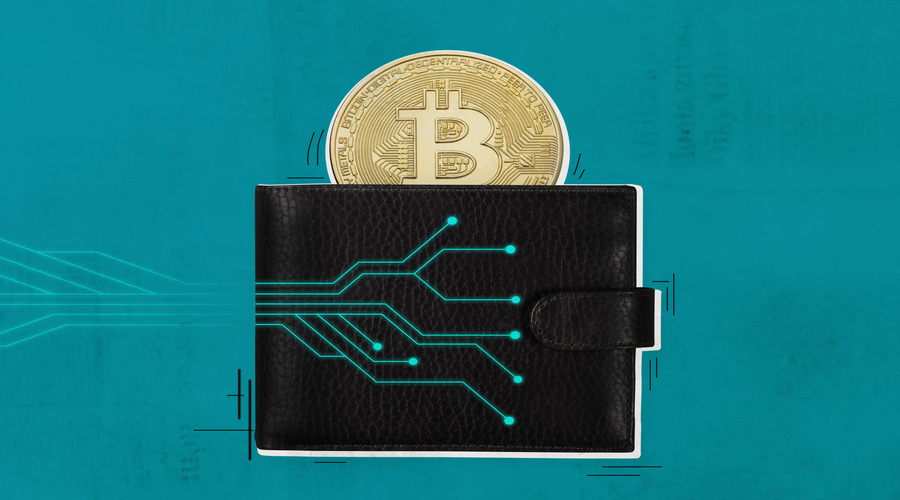Cryptocurrency Wallet Security

Cryptocurrency Wallet Security
Cryptocurrency has revolutionized the way we handle money, enabling fast, secure, and borderless transactions. However, with the increasing adoption of cryptocurrencies, it becomes crucial to understand and implement effective security measures for cryptocurrency wallets. In this article, we will explore various aspects of cryptocurrency wallet security and provide actionable tips to ensure the safety of your digital assets.
Cryptocurrency Wallet Security
Cryptocurrency wallets are digital tools used to store and manage digital currencies. They can be classified into different types based on their mode of operation and accessibility. Understanding the security risks associated with each type of wallet is essential for safeguarding your cryptocurrencies.
In the world of cryptocurrencies, ensuring the security of your digital assets is of paramount importance. Cryptocurrency wallet security plays a crucial role in safeguarding your funds from potential threats and unauthorized access. With the increasing popularity and value of cryptocurrencies, understanding the fundamentals of wallet security is essential for all users. In this article, we will explore the key aspects of cryptocurrency wallet security and provide valuable insights and best practices to help you protect your valuable digital assets. Whether you are a seasoned investor or just starting your cryptocurrency journey, this comprehensive guide will equip you with the knowledge and tools to keep your wallets safe and secure.
Different Types of Cryptocurrency Wallets
- Hardware wallets
Hardware wallets are physical devices that store private keys offline, providing an extra layer of security against online threats. They are generally considered the most secure option for storing cryptocurrencies.
- Software wallets
Software wallets are applications or programs installed on computers or mobile devices. They can be further categorized into desktop, mobile, and online wallets. Software wallets offer convenience but can be vulnerable to malware and hacking attacks.
- Online wallets
Online wallets are web-based wallets provided by cryptocurrency exchanges or third-party service providers. While they offer accessibility, they pose a higher risk of being compromised compared to other wallet types.
- Paper wallets
Paper wallets involve printing out the private key and public address on a piece of paper. They offer a high level of security as long as the paper is kept safe from physical damage or theft.
Importance of Securing Cryptocurrency Wallets
Securing cryptocurrency wallets is of utmost importance to protect your digital assets from unauthorized access and potential loss. Without proper security measures, your funds can be susceptible to theft, hacking, and phishing attacks.
Best Practices for Cryptocurrency Wallet Security
To enhance the security of your cryptocurrency wallets, consider implementing the following best practices:
- Using strong passwords
Creating a strong and unique password is the first line of defense against unauthorized access. Use a combination of uppercase and lowercase letters, numbers, and special characters. Avoid using easily guessable information such as your name or birthdate.
- Enabling two-factor authentication (2FA)
Enabling 2FA adds an extra layer of security to your wallet by requiring a second verification step, usually through a mobile app or SMS code. This helps prevent unauthorized access even if your password is compromised.
- Keeping software and firmware up to date
Regularly updating your wallet software and firmware is crucial to patch any security vulnerabilities or bugs. Developers often release updates to address security issues, and staying up to date helps protect your wallet from known threats.
- Being cautious of phishing attempts
Phishing attempts are common in the cryptocurrency space. Be vigilant when clicking on links or providing sensitive information. Always verify the authenticity of websites and double-check email senders before interacting with them.
Offline Storage Options for Enhanced Security
Storing cryptocurrencies offline can significantly reduce the risk of online threats. Consider the following offline storage options:
- Cold storage
Cold storage refers to keeping your private keys offline, away from any internet connection. This can be achieved through hardware wallets or paper wallets.
- Air-gapped wallets
Air-gapped wallets are wallets that are not connected to the internet at any time. They offer the highest level of security but can be less convenient for regular transactions.
Multi-signature Wallets for Added Protection
Multi-signature wallets require multiple signatures to authorize transactions, adding an extra layer of security. This means that even if one private key is compromised, the funds remain safe.
Secure Backup and Recovery Methods
Creating secure backups and recovery options is crucial in case of wallet loss, theft, or damage. Consider the following methods:
- Seed phrases
Seed phrases are a sequence of words that can be used to recover a wallet. It is essential to keep them safe and confidential, preferably offline.
- Cryptocurrency wallet backups
Regularly backing up your wallet’s data, including private keys and transaction history, ensures you can recover your wallet in case of data loss or hardware failure.

Protecting Against Physical Threats
Physical threats such as fire, water damage, or theft can pose risks to your cryptocurrency wallets. Consider the following measures:
- Fireproof and waterproof storage
Using fireproof and waterproof safes or storage solutions can protect your wallets from physical damage.
- Safe deposit boxes
Safe deposit boxes offered by banks provide an additional layer of security for storing paper wallets or hardware wallets.
- Diversifying storage locations
Spreading your wallet backups across multiple secure locations reduces the risk of losing all your assets in case of a single event.
Mobile Wallet Security Considerations
Mobile wallets offer convenience but can be more susceptible to security risks. Take the following precautions:
- Only install wallets from trusted sources such as official app stores.
- Keep your mobile device’s operating system and wallet app up to date.
- Avoid storing large amounts of cryptocurrency on mobile wallets used for regular transactions.
Risks of Using Online Wallets and Exchanges
While online wallets and exchanges provide easy access to cryptocurrencies, they also introduce additional risks. Be aware of the following:
- Online wallets are more vulnerable to hacking attacks compared to hardware wallets.
- Cryptocurrency exchanges can be targets for hackers. Consider transferring funds to secure wallets after completing transactions.
Securing Cryptocurrency on Centralized Exchanges
If you choose to store cryptocurrencies on centralized exchanges, implement the following security measures:
- Two-factor authentication (2FA)
Enable 2FA for your exchange account to add an extra layer of security. This helps protect against unauthorized access to your funds.
- Whitelisting withdrawal addresses
By whitelisting withdrawal addresses, you can ensure that funds can only be sent to pre-approved addresses, reducing the risk of unauthorized withdrawals.
Evaluating the Security of Cryptocurrency Wallets
When choosing a cryptocurrency wallet, consider the following factors to assess its security:
- Open-source code audits
Open-source wallets undergo regular code audits by the community, ensuring transparency and identifying potential security vulnerabilities.
- Community reputation and trust
Research the reputation and trustworthiness of wallet providers by reading reviews, participating in cryptocurrency forums, and considering community feedback.
Common Mistakes to Avoid
To maintain the security of your cryptocurrency wallets, be aware of and avoid the usage of following common mistakes:
- Storing wallet information in plaintext
Storing wallet information, including private keys or seed phrases, in plaintext or easily accessible locations increases the risk of unauthorized access.
- Using public Wi-Fi for wallet transactions
Avoid conducting wallet transactions or accessing sensitive information over public Wi-Fi networks, as they can be compromised by attackers.
The Future of Cryptocurrency Wallet Security
As the cryptocurrency industry evolves, new security measures and technologies will emerge. Stay updated with the latest developments and adapt your security practices accordingly.
Conclusion
Protecting your cryptocurrency wallets is essential to safeguard your digital assets from theft, hacking, and other security risks. By following best practices such as using strong passwords, enabling 2FA, and exploring offline storage options, you can enhance the security of your cryptocurrency holdings. Stay informed about the latest security trends, evaluate wallet options carefully, and implement robust security measures to ensure the safety of your digital assets.
Frequently Asked Questions (FAQs)
1. Can I use the same password for multiple cryptocurrency wallets?
No, it is not recommended to use the same password for multiple wallets. Using unique passwords for each wallet increases security and reduces the risk of multiple wallets being compromised simultaneously.
2. What happens if I lose my seed phrase or private key?
Losing your seed phrase or private key can result in permanent loss of access to your wallet and funds. It is crucial to keep multiple secure backups of this information and store them in separate, safe locations.
3. Are hardware wallets compatible with all cryptocurrencies?
Hardware wallets support a wide range of cryptocurrencies, but it’s essential to check the compatibility of specific cryptocurrencies with the wallet you choose.
4. Can I recover my cryptocurrency if I accidentally send it to the wrong address?
Cryptocurrency transactions are irreversible, and sending funds to the wrong address may result in permanent loss. Always double-check the recipient’s address before initiating a transaction.
5. Are software wallets safe to use?
Software wallets can be secure if used correctly and kept up to date. However, they are more susceptible to malware and hacking attempts compared to hardware wallets. Implementing additional security measures, such as 2FA, can enhance their safety.

I have been in the industry for over 5 years. I know all the latest news and what is going on with different coins. I write about Bitcoin, Ethereum, Litecoin, and more.







